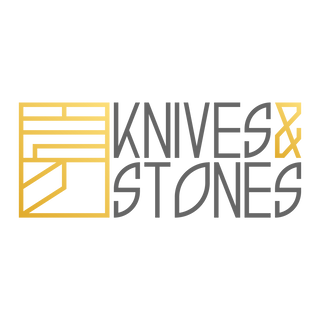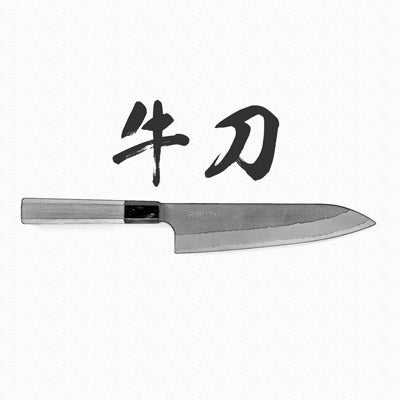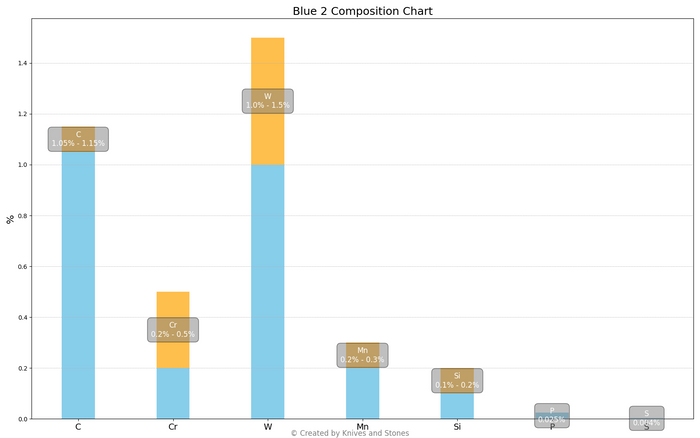Myojin x Nigara Blue 2 Rainbow Damascus Gyuto 210mm Heart Shaped Handle
Myojin x Nigara Blue 2 Rainbow Damascus Gyuto 210mm Heart Shaped Handle is backordered and will ship as soon as it is back in stock.
Couldn't load pickup availability
Detailed Specifications
| Profile | Gyuto / Chefs Knife |
| Bevel Type | Double Bevel |
| Weight | 163 g 5.75 oz |
| Edge Length | 200 mm .7.87 inch |
| Heel Height | 49 mm .1.93 inch |
| Width @ Spine | 3.4 mm 0.13 inch |
| Width @ Mid | 2.6 mm 0.1 inch |
| Width @ 1cm from Tip | 1.0 mm 0.04 inch |
| Steel | Blue 2 / Aogami #2 | Carbon |
| Hardness (HRC) | 61 - 63 |
| Handle | Heart-shaped Ebony Handle |

Care Instruction
- Don't cut hard things! Japanese knives are brittle so bone hacking is a NO NO!
- Wash with netural detergent after use, and wipe dry;
- Please don't wash knife with dishwasher, it will damage the wood handle;
- Be careful not to leave the knife close to a heat source for a long time;
- It is a lot more dangerous to cut with a blunt knife than a sharp knife!
- It is best to sharpen a Japanese knife regularly on a waterstone.
- Oil the (carbon) knife if storing for an extended period of time to prevent rust.






















